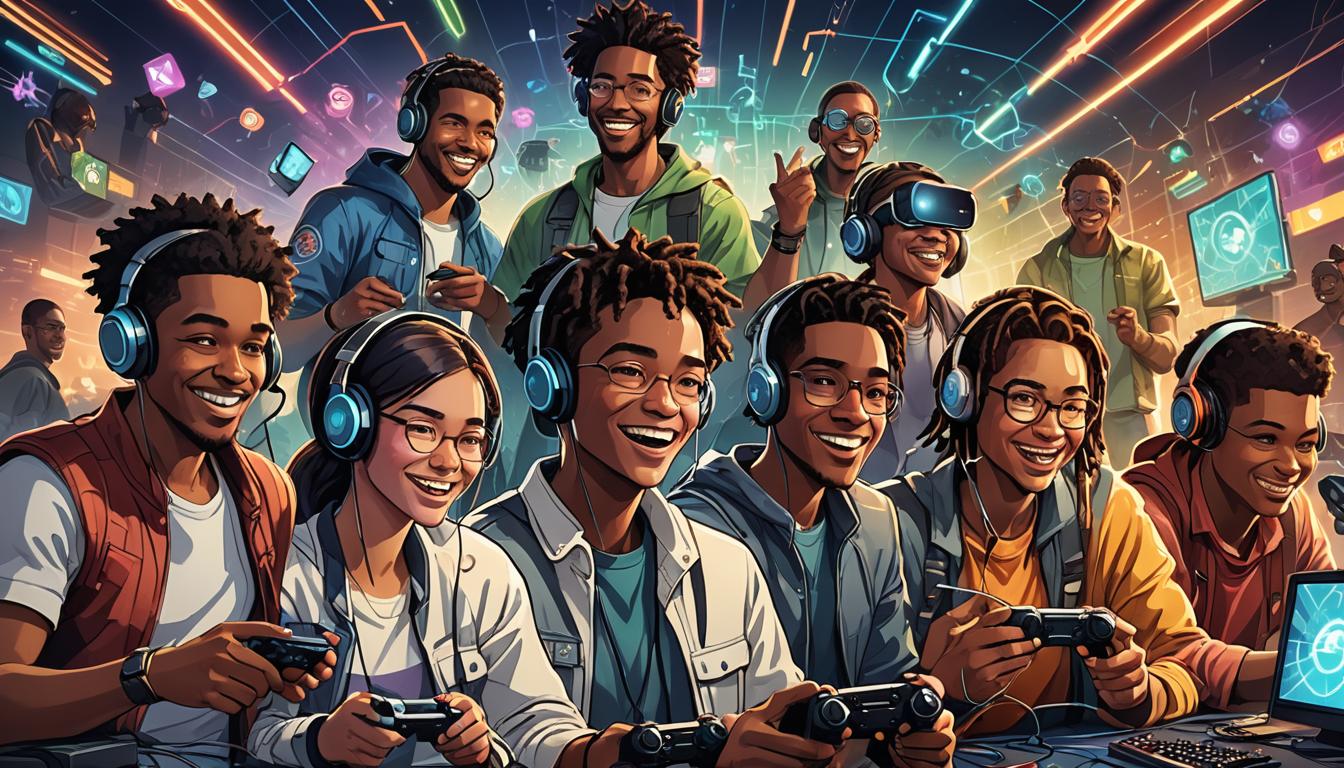In the digital age, gaming has transcended its roots as a mere pastime to become a cultural phenomenon with far-reaching implications. As gamers immerse themselves in virtual worlds, they form connections that often go beyond the games themselves, creating a rich tapestry of relationships and social dynamics. While much focus is placed on the games and hardware, an equally fascinating and less explored aspect is the social life of gamers. Specifically, the friendships forged in virtual environments and their profound impact on real-world interactions.
The Evolution and Nature of Virtual Friendships
Virtual friendships have a long history, evolving alongside advancements in technology and the internet. From text-based chat rooms to sophisticated multiplayer games, the nature of online relationships has become increasingly complex and nuanced. Initially, these connections may begin with a simple shared interest in a particular game or genre. However, as players spend more time together, discussing strategies, sharing experiences, and engaging in casual conversations, these relationships can deepen, often mirroring the complexity of offline friendships.
One of the unique aspects of virtual friendships is their lack of traditional social boundaries. In the physical world, friendships often form based on proximity, shared social circles, or common life stages. However, virtual friendships break these molds, allowing individuals from diverse backgrounds, ages, and cultures to connect. This diversity enriches the experience, offering players a broader perspective on life and enhancing their cultural awareness.
The Multifaceted Benefits of Virtual Friendships
- Broadening Social Horizons and Cultural Awareness
One of the most significant benefits of virtual friendships is the opportunity to interact with a diverse array of people. Gamers often connect with others from different countries, cultures, and backgrounds. This exposure can lead to a greater understanding and appreciation of different perspectives and ways of life. For many, these interactions serve as an informal form of cultural exchange, fostering empathy and breaking down stereotypes. - Emotional Support and Mental Health Benefits
The virtual world can be a sanctuary for those who struggle with social anxiety, introversion, or other mental health challenges. Online friendships provide a platform for individuals to express themselves more freely, without the fear of judgment that can sometimes accompany face-to-face interactions. This anonymity can lead to more open and honest communication, allowing gamers to share personal thoughts and experiences that they might not feel comfortable discussing in person.Moreover, these relationships can offer substantial emotional support. Whether it’s commiserating over a difficult day or celebrating a personal achievement, virtual friends can be a source of comfort and understanding. In some cases, these friendships provide a level of support that is as meaningful as that from offline relationships. For gamers who may feel isolated in their physical lives, these virtual connections can be a vital lifeline. - Skill Development and Real-World Applications
Multiplayer games often require a high level of collaboration, communication, and strategic thinking. Gamers frequently work together with their online friends to achieve in-game objectives, which can involve complex planning and coordination. These interactions can help players develop valuable skills such as teamwork, leadership, and problem-solving.These skills are not confined to the virtual world; they often translate into real-world scenarios. For instance, the ability to work effectively in a team, communicate clearly, and manage time efficiently are all attributes that can benefit one’s personal and professional life. In this sense, virtual friendships can be a training ground for real-world social and professional interactions.
The Complexities and Challenges of Virtual Friendships
While virtual friendships offer numerous benefits, they also come with their own set of challenges. One significant issue is the lack of physical presence, which can sometimes lead to misunderstandings or a lack of accountability. Without the nuances of body language and tone of voice, it can be challenging to fully understand another person’s intentions or emotions. This can lead to conflicts or miscommunications that might be more easily resolved in face-to-face interactions.
Another challenge is the transient nature of online communities. Unlike offline relationships, where people may have long-term commitments or shared social networks, virtual friendships can sometimes be more fleeting. Players may leave a game or community, and with them, the connections may fade. This can be particularly challenging for those who have invested a lot of emotional energy into these relationships.
Additionally, balancing virtual friendships with real-life responsibilities can be difficult. The immersive nature of gaming can sometimes lead to neglect of offline relationships or responsibilities. It’s essential for gamers to manage their time effectively, ensuring that their online interactions do not negatively impact their offline lives.
The Future of Virtual Friendships
As technology continues to advance, the landscape of virtual friendships is set to evolve even further. The development of virtual reality (VR) and augmented reality (AR) technologies promises to bring a new level of immersion to online interactions. These technologies can create experiences that feel almost as real as physical interactions, potentially blurring the lines between the virtual and real worlds.
For instance, VR can allow gamers to interact in a three-dimensional space, making their virtual interactions feel more lifelike. This can enhance the sense of presence and intimacy in online relationships, making them more akin to in-person friendships. Similarly, AR can overlay digital information onto the real world, creating new ways for gamers to interact both online and offline.
The future may also see the rise of more sophisticated AI companions and virtual influencers, further enriching the social landscape of gaming. These digital entities could offer companionship, guidance, and even friendship, providing new opportunities for social interaction in the virtual world.
Conclusion
Virtual friendships formed through gaming are a significant and often underappreciated aspect of modern social life. They offer unique benefits, including broadening social horizons, providing emotional support, and developing valuable skills. However, they also come with challenges, such as the lack of physical presence and the potential for transience.
As technology continues to evolve, the nature of these relationships will likely change, offering even more immersive and lifelike experiences. For gamers, these connections are not just a part of their online lives; they are a meaningful and enriching aspect of their overall social experience. Understanding and appreciating the value of virtual friendships is essential as society navigates the increasingly digital landscape of the future.


Leave a Reply